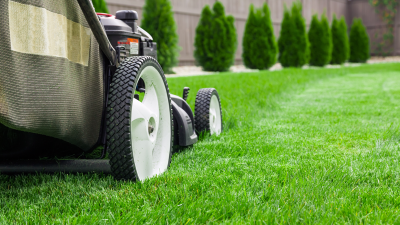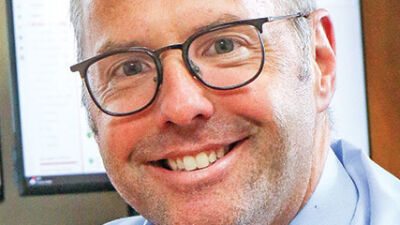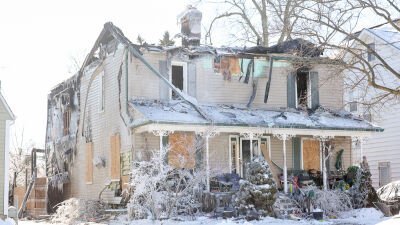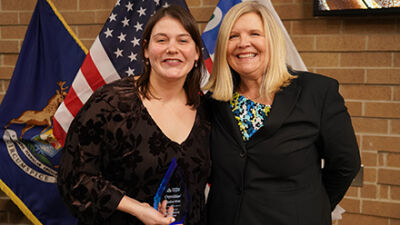ROYAL OAK — The annual practice of No Mow May has been unanimously approved for the fourth time since 2022 at the April 14 Royal Oak City Commission meeting.
No Mow May is a movement that encourages people to let their lawns grow during the month of May, which can make a positive impact on the environment and help protect bees.
“The No Mow May program helps local pollinators by preserving their winter habitats and providing early spring pollen and nectar sources,” the proposal document states.
The initiative also aligns with many of Royal Oak’s Sustainability and Climate Action Plan goals including those related to water management, alternative lawn care practices and the reduction of greenhouse gas emissions.
No Mow May is a part of a Bee City USA initiative.
This action also allows code enforcement not to write people tickets for not mowing their lawns, according to Susan Barkman, assistant city manager, who spoke at the meeting.
Participating residents can purchase a sign to place in their lawn throughout the month.
Signs will be available for purchase 3-7 p.m. April 26 during the Oakland County Earth Day Climate March, Rally and Fair at the Royal Oak Farmers Market, 316 E. 11 Mile Road.
Signs can also be purchased at City Hall, 203 S. Troy St. All the funds raised from purchased signs will be donated toward buying native plants for inclusion in parks and pollinator gardens to expand the positive environmental impact, according to the proposal document.
One does not have to purchase a lawn sign to participate in No Mow May.
Commissioner Monica Hunt asked if participation had gone up in No Mow May since its inception in 2022.
“We’ve sold about 500 signs since its inception, so you know, that’s accumulative. But we assume that the people that bought them the first years are still using them,” said Judy Davids, community engagement specialist for the city of Royal Oak. “We are selling more signs each year for sure, but the first year we sold the most signs.”
According to beecityusa.org, lawns cover 40 million acres, or 2% of land in the US, making them the single largest irrigation crop.
“Lawns are mowed, raked, fertilized, weeded, chemically treated, and watered — sucking up time, money, and other resources,” the website states. “Lawns provide little benefit to wildlife, and are often harmful. Grass-only lawns lack floral resources and nesting sites for bees and are often treated with pesticides that harm bees and other invertebrates.”
Commissioner Brandon Kolo commented on the attention No Mow May receives.
“Every year this creates a lot of buzz in the community,” Kolo said. “But I also think it’s smart in that it’s creating awareness. … I’ve talked more about bees in the last four years than I think I have in my entire life before that. As a community, we are thinking more and more about this.”
Those who choose to participate do not have to go the entire month without mowing; it is an option to mow every two or three weeks, according to Bee City USA.
Commissioner Melanie Macey clarified that the parks will continue to be maintained and are not participating in No Mow May.
No Mow May is an optional initiative.
For more information on No Mow May and Bee City USA, visit beecityusa.org/no-mow-may. For more information on No Mow May in Royal Oak, visit romi.gov.
 Publication select ▼
Publication select ▼




























